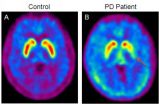(Press-News.org) In the United States, friends often share intimate details of their lives and problems. However, such self-disclosure is much less common in Japan. A new study by an American researcher living in Japan finds that this may be because of the different social systems in the two countries, and in particular the extent to which there are opportunities to make new friends.
"At first, it seemed strange that in Japan, people didn't open up and share a lot about themselves with each other," says Joanna Schug of Hokkaido University. "But Japanese often look at Americans and think, 'Why are they telling me so much about themselves?'" Schug thought the difference might have to do with the way relationships work in the two countries, in particular the utility of investing in relationships by sharing personal details. In a society like Japan, where relationships are entrenched within rigid social networks (what the researchers call societies low in "relational mobility"), relationship-maintenance strategies like self-disclosure are not as useful as they are in societies high in relational mobility (like the United States) where relationships are more easily formed and lost. It is in the latter cultures that people need to invest more effort into strengthening relationships that may be more fragile.
To test this idea, Schug recruited university students in both Japan and the United States to answer questions about their relationships. They indicated how likely they would be to tell either their closest friend or a family member about their biggest secret, their most embarrassing experience, and so on. They also described how the relationships around them work—for example, how much they think that people in their neighborhood, workplace, or other environment can voluntarily choose who they interact with. In another experiment, volunteers also shared the number of new friends and acquaintances they had formed in the previous three months.
Schug wrote the study with Masaki Yuki of Hokkaido University and William Maddux of INSEAD. The work is published in Psychological Science, a journal of the Association for Psychological Science.
Schug and her colleagues found that Japanese people were indeed more likely to feel that relationships were stable and because of this, were less likely to share so much information with their closest friend. However, Americans shared more information with friends than the Japanese because they saw their relationships as more fragile and shifting more often, thus requiring more maintenance via self-disclosure. Schug says the study presents an interesting paradox: Although the United States is a more individualistic country than collectivist Japan, investing in relationships may actually pay higher dividends in cultures that place an emphasis on the individual.
###
For more information about this study, please contact Joanna Schug at joanna@lynx.let.hokudai.ac.jp.
The APS journal Psychological Science is the highest ranked empirical journal in psychology. For a copy of the article "Relational Mobility Explains Between- and Within-Culture Differences in Self-Disclosure to Close Friends" and access to other Psychological Science research findings, please contact Keri Chiodo at 202-293-9300 or kchiodo@psychologicalscience.org.
Friends share personal details to strengthen relationships in United States, but not in Japan
2010-10-20
ELSE PRESS RELEASES FROM THIS DATE:
Docs not immune to drug marketing: Study co-authored by York U prof
2010-10-20
TORONTO, October 19, 2010 – Pharmaceutical promotion may cause doctors to prescribe more expensively, less appropriately and more often, according to a new study co-authored by York University professor Joel Lexchin.
The findings, published today in the journal, PLoS Medicine, offer a broad look at the relationship between doctors' prescribing habits and their exposure to information provided by drug companies. Researchers analyzed 58 separate studies of this phenomenon from Canada, the United States, Europe and Australia, dating from the 1960s.
"Many doctors claim ...
Research brings cure for Parkinson's disease a step closer
2010-10-20
An international collaboration led by academics at the University of Sheffield, has shed new light into Parkinson's disease, which could help with the development of cures or treatments in the future.
The collaboration, which was led by Professor Peter Redgrave from the University's Department of Psychology, suggests that many of the problems suffered by patients with Parkinson's disease - difficulties in initiating actions, slow laboured movements and tremors – can be understood in terms of damage to control circuits in the brain responsible for habits.
The analysis, ...
Culturally inspired mobile phone games help Chinese children learn language characters
2010-10-20
Mobile phone-based games could provide a new way to teach basic knowledge of Chinese language characters that might be particularly helpful in underdeveloped rural areas of China, say researchers in Carnegie Mellon University's Mobile & Immersive Learning for Literacy in Emerging Economies (MILLEE) Project.
Earlier this year, researchers reported that two mobile learning games, inspired by traditional Chinese games, showed promise during preliminary tests with children in Xin'an, an underdeveloped region in Henan Province, China. The researchers from Carnegie Mellon, ...
Inhaling nitric oxide eases pain crises in sickle cell patients
2010-10-20
AUGUSTA, Ga. – Inhaling nitric oxide appears to safely and effectively reduce pain crises in adults with sickle cell disease, researchers report.
A study of 18 patients in Atlanta, Chicago and Detroit showed that the nine inhaling nitric oxide for four hours had better pain control than those receiving only the standard self-administered morphine, said Dr. C. Alvin Head, chairman of the Department of Anesthesiology at the Medical College of Georgia School of Medicine.
"This study shows that you can breathe the gas and have less pain, which is the major reason sickle cell ...
Paraquat resistance discovered in major weed
2010-10-20
Scientists at the University of Adelaide have discovered new cases of herbicide resistance in annual ryegrass, one of the world's most serious and costly weeds.
For the first time, researchers have found that annual ryegrass has developed resistance to paraquat, the second most important "knockdown" herbicide used by cropping farmers.
Weed management experts Dr Peter Boutsalis and Associate Professor Christopher Preston, from the University's Waite Research Institute, made the discovery in samples taken from two separate farming properties near the South Australian ...
How green is your campus?
2010-10-20
Williamsburg, VA —October 19, 2010— Corporations and individuals alike are increasingly focused on "going green," in an attempt to reduce their carbon footprint and impact on the environment. It is questionable whether higher education institutions are adopting sustainable practices at the same rate, despite large consumption rates of energy and water, among other resources. In the first study of its kind, Contemporary Economic Policy presents an article which compares the factors that drive colleges to adopt sustainable practices to the factors that motivate for-profit ...
Inflammatory breast cancer focus of new report
2010-10-20
ATLANTA—October 19, 2010—A rare and deadly form of breast cancer that often goes unrecognized by clinicians and patients alike is the focus of a new report from leading researchers. Inflammatory breast cancer (IBC) has made headlines as an unrecognized and misunderstood form of breast cancer. It has a younger age of onset, progresses rapidly, and has lower overall survival compared to other breast cancers. For the new report, leading researchers led by Massimo Cristofanilli, M.D., of Fox Chase Cancer Center in Philadelphia outline IBC's unique clinical presentation, pathology, ...
Children's best friend
2010-10-20
Montreal, October 19, 2010 – Dogs may not only be man's best friend, they may also have a special role in the lives of children with special needs. According to a new Université de Montreal study, specifically trained service dogs can help reduce the anxiety and enhance the socialization skills of children with Autism Syndrome Disorders (ASDs). The findings published this year in Psychoneuroendocrinology may be a relatively simple solution to help affected children and their families cope with these challenging disorders.
"Our findings showed that the dogs had a clear ...
Conserving resources: Producing circuit boards with plasma
2010-10-20
Flexible circuits can be found in many devices where space and weight considerations are dominant in the design of electronics: in cars, in cameras and video equipment, in mini-computers for athletes or in inkjet printers. And the market continues to grow: according to the business consultancy Frost & Sullivan, sales in this area will grow to more than $16 billion by the year 2014.
At K 2010, the trade fair for plastics in Düsseldorf, Germany, scientists from the IST in Braunschweig will unveil a new reel-to-reel technology for the production of flexible circuits and ...
Consumer sentiment shaped by differing cultural attitudes toward power
2010-10-20
CHAMPAIGN, Ill. – In the battle of egos, Donald Trump vs. Hugo Chavez might be a draw. But as symbols of power, each resonates differently with different cultures, as cultures nurture different views of what is desirable and meaningful to do with power, according to new research by a University of Illinois marketing expert.
Sharon Shavitt says the relation between culture and one's concepts of power emerge from one's cultural orientation, and how that culture shapes one's beliefs, attitudes and goals.
"People's views of powerful people and what powerful people are supposed ...



